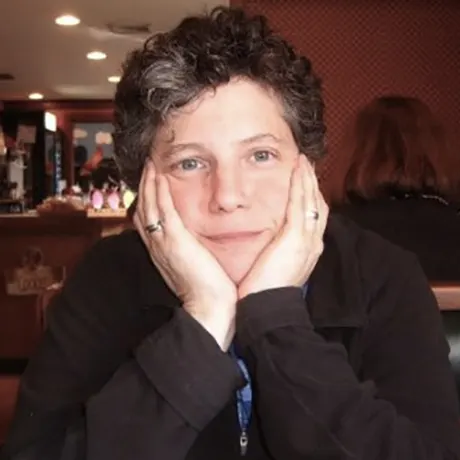What my daughter with dyslexia taught me about learning to read
“Oh my god, she just read the word air!” screams Ella, my then 11-year-old daughter.
We’re at a gas station and her 4-year-old sister Lily is reading all the signs she sees. But Ella has dyslexia and can't, and I’m not sure how to respond. Should I praise little Lily or calm Ella down?
“She’s not supposed to be reading,” Ella whines from the backseat.
“That says gas,” Lily points out to us. “Go to number 4, Mama. I like number 4.”
I pull the car into the number 4 pump as Lily claps. I turn around and see Ella close to tears. Her face is red and puffy, and she is giving Lily her side-eye squint.
“You’re great at other things, like science,” I say to Ella, trying to comfort her and avoid a meltdown. I go to her side of the door and try to kiss her face, but she turns away.
“Stop reading!” Ella yells at her sister. But Lily just looks confused.
I pump the gas, hoping that by the time I get in the car all will be well again.
That was a few years ago. But because of her dyslexia, my daughter, Ella, has always had trouble decoding and sounding out words. And she’s consistently been behind her peers in reading.
When her teacher pointed out her reading struggles to me in first grade, I had trouble accepting it. “She’s just slow to pick up books,” I told the teacher. “She understands everything I read to her.”
The crazy thing is that I was a first-grade teacher myself, yet I couldn’t see or understand what was happening with my own daughter. Luckily for us, Ella’s teacher refused to let it go. She kept pestering us at parent-teacher meetings to investigate why Ella was struggling to learn to read.
She knew something wasn’t right and wanted Ella to be tested. But my wife and I were horrified by the thought of testing. Ella’s vocabulary was so high. How could something be wrong?
Ella’s reading skills weren’t getting better, however. So we finally agreed to have her evaluated in the summer between first and second grade.
“She has a reading disorder,” the evaluator told us. I cringed. Why do they have to use the word “disorder”? Ella is so special, so smart. This doesn’t make sense.
Ella’s struggles were especially hard for me to understand because learning to read was completely different for me. When I was a little kid, I had a friend named Peter who read the New York Times at 3 years old. I was so impressed by him that I pretended to read everything I could.
I told stories from memory, trying to fool people into thinking that I was reading them. I even asked my mom to teach me how to read. She said no — it was the 1970s and parenting was a lot different back then.
Finally, I went to first grade. By the end of my first week, I was decoding fluently and able to read all the books on my grade level. That was the beginning of my love of books. I became a teacher so that I could read all day. I had no idea what Ella was going through — to feel like a failure at something as essential as reading.
Like it or not, however, I had to learn about and adapt to Ella’s diagnosis quickly. The first thing we did was find and hire a skilled reading tutor. We then got Ella reading services at school.
I also realized that I needed to change my own attitude as a parent and a teacher. I started to open my mind to the fact that some children, even though they may be very bright, learn to read differently. I began to think about why parents accept or reject their child’s learning and thinking differences. All of this changed the way I approached reading and teaching reading.
Over time, I became more understanding and patient with Ella. She was my heart and my soul, and now I was learning from her about dyslexia and what it means to learn to read. She was teaching me the meaning of bravery, compassion, and tolerance for all of our differences. Mostly, she was showing me that she was indeed special.
Ella didn’t have it easy in grade school, but she hung on and tried her best, even when all of her friends were reading much harder books. Sometimes, she was so frustrated that she yelled at her sister. Sometimes, she simply cried. But we made it through, together.
Now Ella is going into seventh grade, and she finally feels comfortable reading books on her own. She likes to read nonfiction — mostly science. She loves graphic novels. Ella is finding herself and being understood for who she is and is even speaking out about her dyslexia. She’s teaching me to understand who I am, as well.
Watch a video of Ella talking to a class of college students about dyslexia. Find out why learning to read is harder than learning to speak. And learn next steps if your child is diagnosed with dyslexia.



